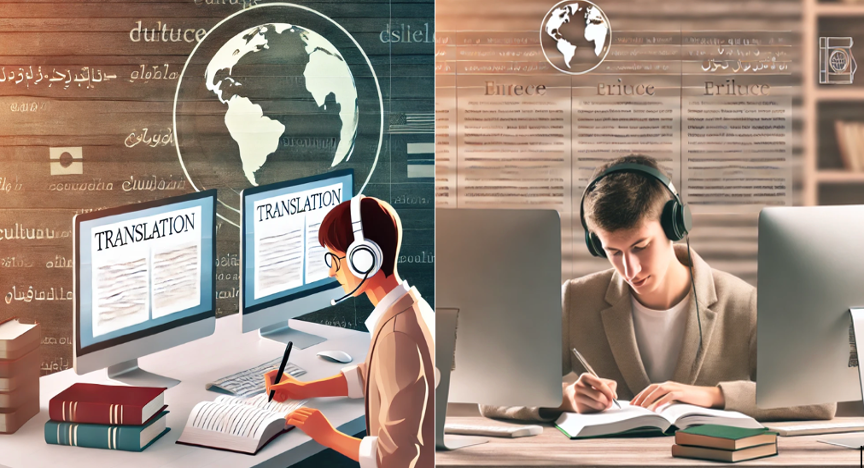Choosing a translator for your written work is more than just finding someone fluent in two languages: it’s about preserving the original essence, voice, and nuances of your writing. Selecting the right translator is crucial to ensure that your content resonates with the target audience as powerfully as it does in the source language. Here’s a comprehensive guide to help you make the best decision when choosing a translator for your project.
1. Evaluate Language Proficiency and Expertise The first step in finding a good translator is ensuring they have an exceptional command of both the source and target languages. However, proficiency is not just about knowing the words; it’s about understanding idiomatic expressions, cultural references, and nuances. Look for translators who have certifications, degrees, or extensive experience in language studies or related fields.
2. Prioritize Native Speakers for the Target Language Native speakers of the target language often have an innate understanding of linguistic subtleties and cultural connotations that non-native speakers might miss. A native translator can adapt the tone, style, and context to fit the cultural and societal norms of the target audience, preserving the essence of your work.
3. Look for Subject Matter Expertise Translation is not just about language; it also involves understanding the content. A translator with expertise in your field can ensure accurate terminology and context. For instance, if you’re translating a legal document, it’s best to hire someone who understands legal jargon in both languages. Similarly, literary translations require a translator who appreciates and can replicate the artistry of storytelling.
4. Check Past Work and References Reviewing a translator’s previous work can give your insight into their ability to convey complex ideas while maintaining the author’s voice. Ask for samples or references from past clients who have worked with them on similar projects. This step can provide valuable information about their consistency, style, and reliability.
5. Understand Their Approach to Cultural Nuances One of the most significant challenges in translation is capturing cultural nuances. A good translator knows how to maintain the integrity of cultural expressions or adapt them when necessary to avoid confusion or misinterpretation. Be sure to discuss how they handle culturally specific terms or scenarios in your work.
6. Assess Their Ability to Preserve the Original Style Maintaining the essence of your work means preserving its style and tone. A professional translator should be able to match the formality, humor, sarcasm, or any unique voice elements present in the original. Ask how they plan to keep the same level of engagement and emotional impact.
7. Inquire About the Translation Process A reliable translator will have a structured approach to their work. Ask questions about their translation process, including their methods for checking accuracy, incorporating feedback, and conducting revisions. Understanding their workflow will give you confidence in their commitment to quality.
8. Ensure Collaborative Communication Effective translation requires collaboration between the author and translator. Choose someone who is open to asking questions and discussing ambiguities to ensure the translated work reflects your intentions. A translator who values communication will also be willing to take your input throughout the project.
9. Confirm Their Familiarity with Tools and Technology Many professional translators use translation software and other technological tools to aid their work. While these tools can be beneficial for consistency, be wary of those who rely solely on machine translation without human oversight. A balance between technological assistance and human expertise is essential.
10. Test Their Translation Skills Before committing to a translator, consider assigning a small portion of your work as a test project. This can help you assess their translation style, attention to detail, and overall ability to maintain the essence of your work. Review the test with an independent editor to provide an unbiased assessment.
11. Verify Their Attention to Deadlines Punctuality is essential in any professional relationship. Ensure that the translator you choose can meet deadlines without compromising quality. Discuss timelines and flexibility at the beginning of the project to avoid future issues.
12. Look for Feedback and Reviews In today’s digital age, it’s easy to find reviews and feedback on professionals. Check their online presence, including reviews and testimonials on freelancing platforms or translation service sites. Positive feedback from reputable sources is often a good indicator of their reliability.
13. Ask About Their Editing and Proofreading Policies A translation is rarely perfect on the first pass. Confirm if the translator offers editing and proofreading services as part of the package or if these are available at an additional cost. This step is essential to ensure that the final product is polished and error-free.
14. Assess Cost vs. Quality While budget is a factor, it shouldn’t be the only criterion. Higher prices often reflect better quality, experience, and reliability. Be cautious about translators who offer very low rates, as this might indicate a lack of experience or subpar work. Find a balance that ensures value without sacrificing quality.
15. Establish Trust and Professionalism Lastly, trust and professionalism are fundamental in any working relationship. Choose a translator who demonstrates integrity, respects your work, and approaches the project with genuine interest. The right translator will see your work as an extension of your voice and will treat it with the respect and dedication it deserves.
Choosing a translator who can faithfully preserve the essence of your work is a critical step in reaching a broader audience. By following these tips, you can find someone who not only understands the language but also captures the heart of your writing, allowing it to shine in any linguistic context.

